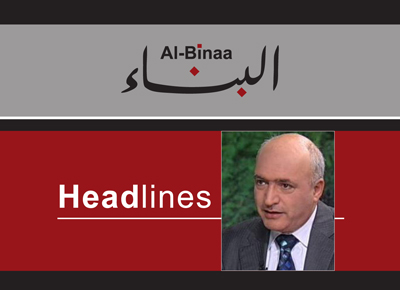Lebanese Anticipation Amid Government Formation Uncertainty and Ceasefire Agreement Strain / No Secret Signals from the Saudi Minister, Dar Al-Fatwa Displeased with Salam’s Non-Visit
Hezbollah: Exceeding the Deadline Is a Flagrant Violation of the Agreement... We Will Monitor Developments

January 24, 2025
The political editor wrote
Ambiguity once again dominates the Lebanese political scene. The visit of Saudi Foreign Minister Prince Faisal bin Farhan did little to dispel the uncertainty, as some had hoped he would bring with him a ‘governmental secret signal’ to break the deadlock. However, the source of this stalemate appears more political than technical. Prime Minister-designate Nawaf Salam reportedly reached an agreeable and flexible understanding with the Amal-Hezbollah duo, described as accommodating yet non-negotiable on the agreement’s core principles.
Uncertainty remains over Christian representation, with disputes between the Lebanese Forces and the Free Patriotic Movement concerning the number and type of ministerial portfolios. Additionally, Salam faces ambiguity in handling the opposition of Change MPs, who fiercely oppose granting the Finance Ministry to the Amal-Hezbollah duo. These MPs, who celebrated Salam’s appointment as a victory for their revolution, may become a source of tension. Meanwhile, Sunni parliamentary blocs are dissatisfied with the perceived neglect in Salam’s engagement with them, compounded by Dar Al-Fatwa’s annoyance at Salam’s failure to pay the customary visit following his designation.
The second layer of ambiguity concerns what will transpire after the expiration of the 60-day deadline stipulated in the ceasefire agreement for the withdrawal of the occupation army to beyond the Blue Line. Israeli media, quoting sources, have hinted at a decision to maintain positions within Lebanese territory, with UNIFIL and Washington allegedly being informed. Following his meeting with the American supervisor of the ceasefire agreement, Speaker Nabih Berri expressed frustration over the lack of definitive answers aligning with the pre-agreement commitments. Doubts linger over whether the deadline will pass without full withdrawal, sparking fears that the agreement may falter. It remains unclear whether this will manifest as skirmishes between the occupation forces and the resistance, or if Israel intends to escalate to full-scale or partial war. Similarly, the international community’s response to a missed deadline is uncertain, beyond issuing complaints or raising concerns.
Hezbollah issued a statement asserting:
“The 60-day period for the Zionist enemy to fully withdraw from Lebanese territory is nearing its end. This necessitates complete and comprehensive implementation of the ceasefire agreement”.
The statement continued:
“Reports suggesting a delay in the enemy’s withdrawal and its extended presence in Lebanon require immediate action, particularly from Lebanon’s political leadership, to pressure the agreement’s sponsoring states to ensure its full execution. This includes the Lebanese Army’s deployment across every inch of Lebanese land, the swift return of displaced residents to their villages, and preempting any justifications for prolonging the occupation”.
The party further stated:
“Any violation of the 60-day deadline constitutes a blatant breach of the agreement, an escalation of the attack on Lebanese sovereignty, and the start of a new phase of occupation. This demands a resolute response from the state, utilising all internationally sanctioned measures to reclaim occupied land and restore sovereignty”.
The statement concluded:
“While we closely monitor the unfolding situation, which should culminate in the coming days with full withdrawal, any failure to uphold the agreement or adhere to commitments under flimsy pretexts will be categorically unacceptable. We call for strict adherence to the agreement without concessions”.




